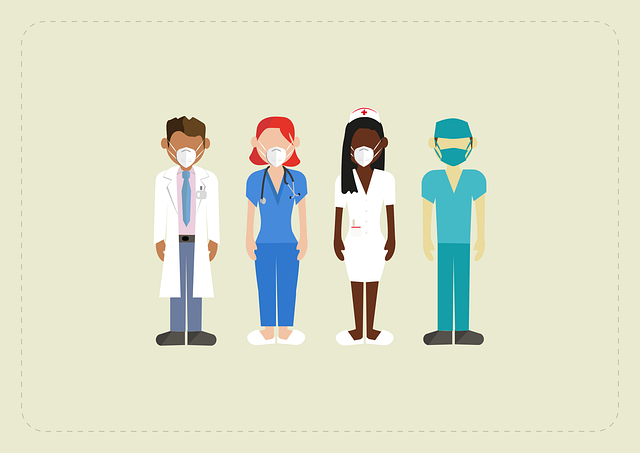Post-operative care is a critical phase in patient recovery, focusing on complex physiological processes to restore health. Traditional methods face challenges like prolonged recovery times, infection risks, and patient discomfort. Emerging non-invasive solutions, powered by technology like light therapy, negative pressure wound therapy, and data-driven precision medicine, are revolutionizing care. Alternative therapies, such as acupuncture and mindfulness, offer holistic benefits. Integrating these innovative techniques significantly enhances post-operative care, reducing patient discomfort, speeding recovery, and minimizing infection risks.
Post-operative healing is a critical phase in patient recovery, often accompanied by discomfort and lengthy rehabilitation. Traditional methods, while effective, can be invasive and time-consuming. This article explores non-invasive solutions revolutionizing post-operative care. We delve into the understanding of basic healing processes, the challenges of conventional practices, and cutting-edge innovations. By examining alternative therapies, we uncover their benefits for faster recovery. Additionally, we discuss strategies to integrate these non-invasive approaches into clinical settings, offering a glimpse into a more efficient and patient-centric future of post-operative care.
- Understanding Post-Operative Healing: The Basics
- Challenges in Traditional Post-Op Care
- Innovations in Non-Invasive Healing Solutions
- Benefits of Alternative Therapies for Faster Recovery
- Integrating Non-Invasive Approaches into Clinical Practice
Understanding Post-Operative Healing: The Basics

Post-operative healing is a crucial phase in a patient’s recovery journey, encompassing various physiological and biochemical processes that aim to restore the body to its optimal state after surgery. This period is critical as it determines the overall success and speed of recovery, influencing factors such as scar formation, pain management, and the risk of complications. Understanding the basics of post-operative care is essential for both healthcare professionals and patients.
Effective post-operative care involves a multifaceted approach that includes monitoring vital signs, managing pain, providing adequate nutrition, and ensuring proper rest and hygiene. Each of these components plays a significant role in facilitating healing. For instance, proper wound care and infection prevention are paramount to prevent surgical site infections. Additionally, maintaining optimal hydration levels and administering appropriate medications can significantly impact recovery speed and overall patient comfort during this critical period.
Challenges in Traditional Post-Op Care

The traditional approach to post-operative care often involves a range of invasive procedures designed to aid healing. However, this method is not without its challenges. One significant issue is the increased risk of infection due to frequent needle injections and surgical incisions, which can lead to prolonged recovery times and potential complications. Additionally, many conventional treatments may cause patient discomfort, requiring additional medication for pain management.
Moreover, traditional post-op care often demands frequent hospital visits or lengthy stays, impacting patients’ quality of life and imposing substantial financial burdens on both patients and healthcare systems. These drawbacks highlight the need for more efficient, non-invasive solutions to streamline healing processes and enhance overall patient experiences during recovery.
Innovations in Non-Invasive Healing Solutions

The landscape of post-operative care is undergoing a metamorphosis with the emergence of innovative, non-invasive healing solutions. These cutting-edge approaches are revolutionizing patient recovery, offering a symphony of benefits that traditional methods often cannot match. From advanced technology like light therapy and negative pressure wound therapy to the application of growth factors and stem cells, these solutions provide a gentle yet effective way to enhance healing without the risks associated with invasive procedures.
In today’s digital era, researchers are leveraging data and artificial intelligence to personalize post-operative care plans, ensuring that each patient receives tailored treatments. This precision medicine approach not only accelerates recovery but also minimizes complications. Additionally, remote monitoring technologies enable healthcare providers to track patients’ progress in real time, facilitating timely interventions and fostering a more efficient and accessible post-operative care system.
Benefits of Alternative Therapies for Faster Recovery

Alternative therapies offer a promising approach to enhancing post-operative care and accelerating recovery. Unlike traditional medical interventions, these non-invasive solutions focus on harnessing the body’s natural healing mechanisms, promoting self-repair, and reducing reliance on medication. Techniques such as acupuncture, herbal medicine, massage therapy, and mindfulness practices have gained recognition for their ability to alleviate pain, reduce inflammation, and improve overall post-surgery well-being.
By integrating these alternative therapies into the post-operative routine, patients can experience faster healing times, reduced risk of complications, and improved quality of life during recovery. The holistic nature of these treatments addresses not only physical symptoms but also mental and emotional aspects, ensuring a more comprehensive approach to patient care. This shift towards complementary and alternative medicine in post-operative care is revolutionizing the way healthcare professionals support patients’ journeys to full recovery.
Integrating Non-Invasive Approaches into Clinical Practice

Integrating non-invasive solutions into clinical practice for post-operative care is a significant step forward in modern healthcare. These innovative approaches offer a multitude of benefits, such as reduced patient discomfort, faster recovery times, and minimized risk of infection. By adopting these methods, healthcare professionals can enhance overall patient satisfaction and outcomes.
Non-invasive techniques, including light therapy, negative pressure wound therapy, and hyperbaric oxygen therapy, have shown promising results in various studies. These treatments not only aid in healing but also empower patients to actively participate in their recovery process. As technology advances, it’s crucial for clinical settings to embrace these solutions, ensuring a more comprehensive and effective post-operative care regimen.
Non-invasive solutions for post-operative healing represent a significant advancement in modern healthcare, addressing the challenges of traditional post-op care. By leveraging innovations such as advanced wound care technologies, physical therapy, and complementary therapies, these alternative approaches offer faster recovery times, improved patient comfort, and reduced risk of complications. Integrating non-invasive methods into clinical practice not only enhances patient outcomes but also promotes a more holistic and patient-centric approach to post-operative care. As research continues to evolve, embracing these solutions can revolutionize how we manage healing in the future.
